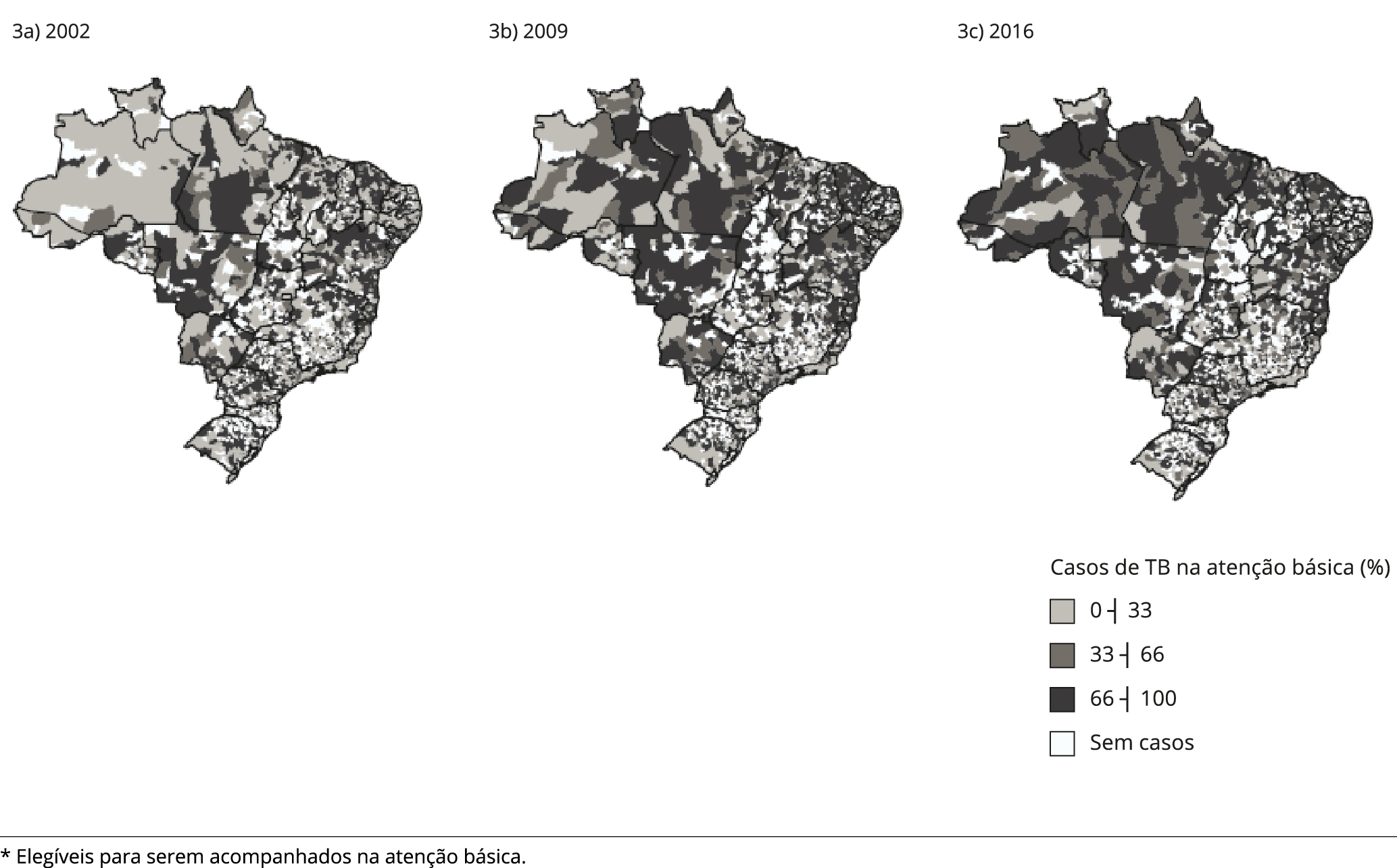Abstract:
This study aimed to validate a method for classification of healthcare services in Brazil (basic care vs. other levels) and describe the decentralization of tuberculosis (TB) care to basic services (2002 to 2016). The healthcare services that reported and followed TB cases were classified as either “basic care” or “other levels” based on the type of establishment registered in the Brazilian National Registry of Healthcare Establishments (CNES, in Portuguese). The study estimated the agreement between this classification with a previous classification performed in 2013 by Brazil’s state and local tuberculosis programs. Using the CNES registry, the authors then calculated the percentage of TB patients treated in basic care from 2002 to 2016. Agreement was 94.4%, and overall kappa index was 0.86. There was a relative increment of 31.2% in TB care provided by basic services (from 50.9% in 2002 to 66.8% in 2016). All regions of Brazil showed an increase in this percentage, except the South. The classification based on the CNES registry allowed analyzing the trend in decentralization of TB treatment to basic healthcare services in Brazil.
Keywords:
Tuberculosis; Primary Health Care; Health Information Systems; Decentralization

 Thumbnail
Thumbnail
 Thumbnail
Thumbnail
 Thumbnail
Thumbnail


